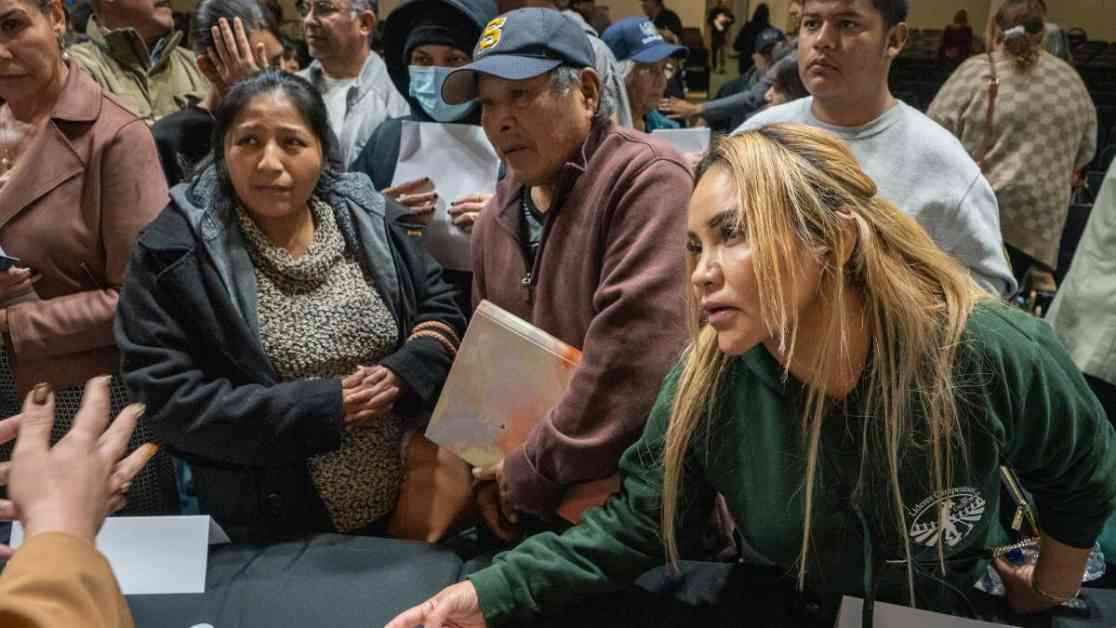Title: Community Groups Unite in Response to Immigration Raids Amid Trump’s Deportation Agenda
In a time of heightened immigration enforcement activities under the Trump administration, concerned citizens and community organizations in Kern County have come together to form strike teams to respond to reported raids and provide support to those affected.
The Rapid Response Network of Kern quickly mobilized after receiving multiple calls on their tip line about U.S. Border Patrol agents questioning and detaining Latinos in various locations. Volunteers and staff members of the organization rushed to confirm these reports, documenting any violations of rights or use of force, and providing assistance to those who were detained.
Border Patrol Chief Agent Gregory K. Bovino reported that 78 undocumented immigrants were arrested during a multi-day operation, with agents detaining individuals for being in the U.S. unlawfully and other criminal offenses. Advocates on the ground, however, criticized the operation for targeting Latino farmworkers and day laborers indiscriminately and questioned the necessity of conducting raids so far from the border.
Rapid-response networks like the one in Kern County have emerged across the state as a first line of defense for immigrants facing deportation threats. These community-led groups operate by receiving reports of immigration or border agents in the community, verifying the information, and providing legal support and guidance to those in need.
While the focus of these networks shifted during the pandemic to providing information about vaccines and food assistance, the recent uptick in immigration raids has prompted a resurgence in their original purpose. With Trump’s promises of large-scale deportations and the closure of legal avenues to asylum, organizations are preparing to confront the challenges ahead.
Lisa Knox, co-executive director of the California Collaborative for Immigrant Justice, stressed the importance of disseminating accurate information to dispel panic and misinformation among immigrant communities. By educating individuals about their rights and providing support during encounters with ICE agents, these networks aim to empower and protect vulnerable populations.
The recent raids in the Bakersfield area, which targeted a significant immigrant workforce responsible for harvesting a quarter of the country’s produce, have caused widespread fear and panic among residents. The Rapid Response Network of Kern has been actively assisting families affected by the raids, distributing groceries, coordinating transportation, and exploring emergency rental assistance for those who lost income.
Inland Empire Rapid Response Network and Valley Watch Network, serving communities across Kern to San Joaquin counties, have also seen an increase in reports of possible immigration enforcement activities. Volunteers have been responding to alerts, dispelling rumors, and providing updates on social media to keep community members informed.
The challenges of covering a vast region and responding swiftly to reports of raids have prompted these organizations to expand their training and recruitment efforts. By having bilingual dispatchers available around the clock and training more responders and legal observers, the networks hope to effectively monitor and document immigration enforcement activities.
In the face of uncertainty and heightened enforcement actions, the solidarity and resilience of these community groups offer a beacon of hope for immigrant communities across California. As they continue to navigate the complexities of immigration policies and protect the rights of vulnerable individuals, their efforts underscore the importance of collective action and support in times of crisis.



























